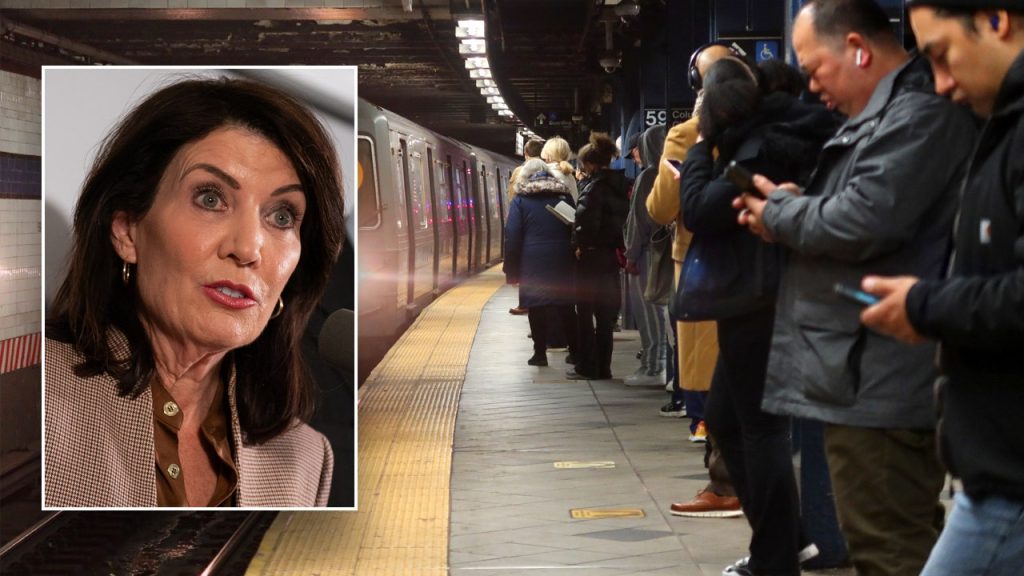New York Governor Kathy Hochul recently announced that security cameras have been installed in every subway car in New York City in response to a surge in violent crime incidents on the subway system. This move is expected to assist police in solving crimes more quickly. This decision follows the deployment of 1,000 National Guard members to patrol the subway system, reinforcing Hochul’s commitment to prioritizing public safety. Hochul also highlighted the role of untreated mental illness in many of these incidents, attributing it to failures in the mental health care system and state laws. She emphasized the need for legislative changes to address the involuntary commitment of dangerous mentally unstable individuals.
Despite the efforts made by Hochul, she is facing criticism for not taking stronger action to protect subway passengers. Activist Curtis Sliwa, founder of the ‘Guardian Angels,’ a citizen law enforcement group, called out Hochul for not leveraging her power to push for legislation that would commit emotionally disturbed individuals to state psychiatric hospitals. Sliwa pointed out that fare evasion on the subway has also contributed to increased crime rates and urged Hochul to tighten control over who enters the subway system to ensure better safety for passengers. Criticism has also come from Republican New York Council member Joe Borelli, who blames Democratic policies for contributing to the rise in violence, pointing to the closure of mental health facilities and the impact of bail reform and ‘raise the age’ laws.
In light of recent high-profile incidents, such as a homeless woman being burned alive and a man being pushed in front of a subway train, there is growing concern among public officials and advocates about the safety of New Yorkers using the subway system. The trial of former Marine Daniel Penny, who was initially charged with homicide for defending subway passengers from a mentally unstable individual, has also raised questions about mental health treatment and legislation related to involuntary commitment. Hochul’s announcement regarding the installation of security cameras is seen as a step towards addressing these concerns, but there are calls for further action to be taken to ensure the safety of passengers.
Hochul’s focus on mental health treatment and legislative changes to improve the involuntary commitment process for unstable individuals shows a recognition of the underlying issues contributing to violent incidents on the subway. However, critics argue that more decisive action is needed to address the root causes of crime and ensure the effective enforcement of laws. The tension between prioritizing public safety and protecting the rights of individuals with mental illness highlights the complexities involved in addressing these issues. The debate surrounding Hochul’s approach to subway safety reflects broader concerns about the impact of policies on crime rates and mental health services in New York City.
As calls for stricter measures to address violent crime on the subway system continue to grow, there is a need for a comprehensive approach that balances the protection of individuals with mental health needs and the safety of all passengers. Hochul’s deployment of National Guard members and installation of security cameras are steps in the right direction, but further legislative changes and enforcement efforts may be necessary to address the root causes of crime. The criticism directed at Hochul underscores the challenges of finding effective solutions to complex societal issues, particularly in urban environments where public transportation systems are essential for daily functioning. Moving forward, a multi-faceted strategy that combines law enforcement, mental health services, and community engagement may be needed to ensure the safety and well-being of all subway passengers in New York City.













